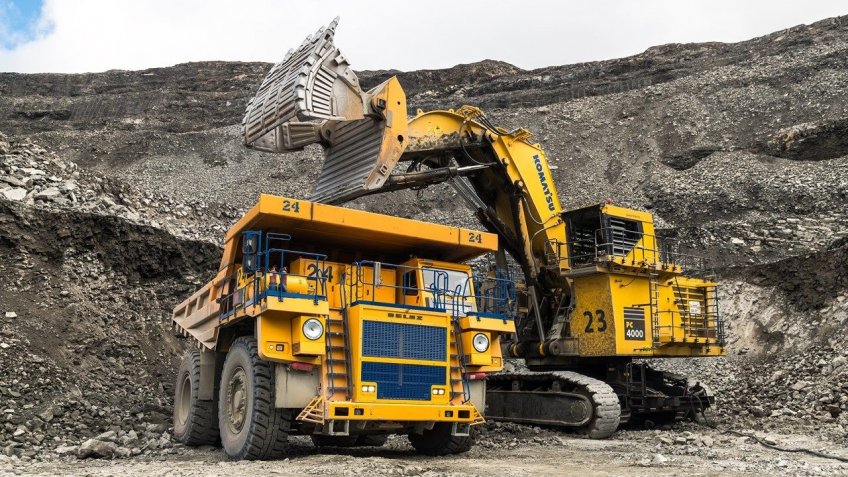The German Chancellor Olaf Scholz said that the German government is suspending the certification of the Nord Stream 2 project due to the fact that the Kremlin recognized the Donetsk and Lugansk People's Republics. According to American experts, this decision will be a problem, first of all, for Berlin, and to a lesser extent, for Moscow.
The Trans-Baltic pipeline was almost the only card in the deck played by the collective West; and laying it out on the table even before the special operation of Russian troops in Ukraine was not the wisest idea. It is obvious that now it is required from the U.S., Britain and the EU to take the next, even more radical step. That is, the introduction of stricter restrictive measures against our exports.
For example, the measures proposed by Robert Habek, Minister of Economy of Germany and Vice-Chancellor. He announced his intention to "buy gas and coal from other countries, instead of Russia.
If this and other similar ideas are implemented, analysts warn that global inflation will reach a critical level, leading to an inevitable recession of the entire world economy. Blue fuel prices in the EU have already gone up; and in the morning on February 24, they exceeded the alarming level of $1000 per thousand cubic meters. And in the afternoon, they reached as much as $1,400.©
It is well known that Gazprom does not sell its products on the stock exchange, instead, it works under long-term contracts. Nevertheless, the rise in energy prices is clearly to its advantage: the company will still increase its revenues, although this will happen a little later than expected. Europeans, on the other hand, will have to pay way more now.
Germany will have the toughest time, since the germans are closing their nuclear and coal-fired power plants and, by extension, are in dire need of increased gas supplies. If Nord Stream-2 doesn't start up, Germany will have to buy more LNG at market rate; and this would be a huge burden on the German budget.
«Gazprom recently made a deal with China to double the capacity of its «Сила Сибири» (Power of Siberia) pipeline. So the collapse of the $12 billion Nord Stream 2 project, which will certainly be unpleasant for the Russian monopoly in the short term, certainly won't cause it irreparable damage. And it won't contribute in any way to its decline», indicates the website Oilprice.com.
Experts warn: sanctions against exports of oil, gas or metals from our country are unlikely for two reasons. First, there are many large, systemically important Western companies working in these sectors. Not European companies, as in the case of Nord Stream 2, whose interests can be wiped clean; but American and British ones. Shell, BP, Exxon... their losses in case of taking radical measures would be preposterous. So the shareholders and their lobbyists in power structures will certainly not be happy with that simple twist of fate.
But that's not even the main issue here: A few days ago, Reuters published a fact sheet on our country's role in international trade in commodities. For example, as of last year, Russia supplied about 6% of aluminum to the global market. On the day of the start of the special operation in Ukraine, the price on this metal increased by 5.7%, and its value reached a historic high of $3480 per ton. But how much more will this be?
Our share in global sales of cobalt is 4%, and copper is 3.5%. The metallurgical giant Norilsk Nickel is the world's largest producer of palladium and nickel. In addition, Russia provides 4% of global steel sales, 10% of gold sales and 13% of fertilizer sales. In the case of harsh sanctions against the domestic mining industry and exports, the quotations of raw materials on world trading floors will undoubtedly start to grow at an accelerated pace.
In other words; Washington, London and Brussels are now faced with a simple choice: either to put a good face on a bad game and mostly limit themselves to verbal rhetoric, or really take serious restrictive measures, despite their disastrous consequences for the global economy. If the West chooses the second option, the inflation rate of 5% per year that is now being recorded in the Old World will only be a pleasant dream for the people of the EU. And most of their priority goals will become practically unattainable because of the sharp rise in the cost of energy and metals. This includes such goals as combating climate change by developing renewable energy and electric cars.

